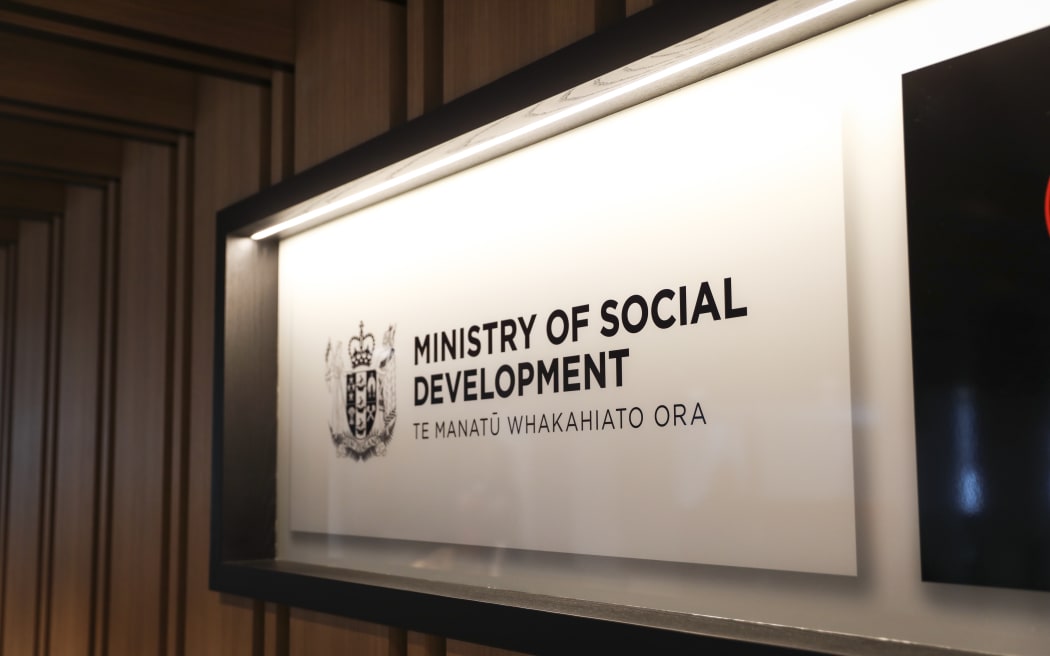
Photo: RNZ / Rebekah Parsons-King
Government departments that increased their staff numbers towards the end of last year have defended the hiring, after the prime minister said it was "disappointing" to see.
Department staffing increased by another 4.1 percent in the final six months of last year, despite directives from both the previous and current governments to cut costs.
Te Kawa Mataaho the Public Service Commission normally publishes data on the increases each year, but unveiled the increase of 2582 full-time equivalent (FTE) roles for the year to 31 December.
Acting Public Service Commissioner Heather Baggott said the increase reflected the "work programmes and priorities of the previous government".
"Numbers are expected to drop in line with the [coalition] government's savings and efficiency drive and as budget 24 decisions start to flow through."
Prime Minister Christopher Luxon said the increases were disappointing to see, but he was confident departments had got the message now.
"It is disappointing that that's happened by some of those agencies - not all of them but some of them. What I'd say now, it's crystal clear. We've had multiple conversations with every agency across the country and the expectation's very clear.
"We are seriously expecting the public sector to make savings and efficiencies to get rid of the consultants, to get rid of the wasteful spending, stop the dumb programmes and make sure we free that cash up so that we can use that money in a more productive way."
He acknowledged it was tough for people to lose their jobs, but placed the blame on the former government for allowing the public service to grow too big.
"You cannot increase government spending by 84 percent, you cannot add 16,000 more bureaucrats, you cannot have more contractor and consultant spend going on because all that did was drive into domestic inflation that lifted interest rates, that's now slowed our economy down, and rising unemployment is the consequence of that."
He said it was "tough for anyone losing their jobs".
"As we've seen over the last two years, it's been tough for people in the private sector as well who've lost their jobs."
Seven of the 38 departments reported decreases in their total staff count - with Statistics NZ showing the largest drop of 209 fewer FTEs, a 12.3 percent cut in total roles - but the others all increased at least slightly.
The largest increases by total staff numbers were at the Ministry of Social Development (MSD) by 405 FTEs (4.5 percent), 368 FTEs (5.9 percent) at the Ministry of Business, Innovation and Employment, and 363 FTEs (9 percent) at Inland Revenue.
MSD and MBIE are also the second and third largest departments by total staff numbers, with 9482 and 6650 staff respectively, behind Department of Corrections with 9793 staff. IRD's 4386 staff brings it in at seventh.
MSD deputy chief executive Nadine Kilmister said the recruitment over that time was in line with their work programme and priorities at that time.
"The majority of our people work in front line roles. The increase in MSD's full time equivalent staff between June and December 2023 was so the Ministry could continue to meet demand and continue to deliver a high level of services to New Zealanders," she said.
"Our total head-count continues to decline and has fallen from 9482 at the end of December, to 9248 as at 25 March. In line with government expectations to reduce public sector expenditure we have been managing our workforce numbers by careful management of vacancies including holding vacancies and in other cases deciding to remove vacant roles."
She pointed to the offer of voluntary redundancy announced on Thursday and said the department expected further decreases "as we continue to prioritise our spend".
MBIE deputy secretary Richard Griffiths said the increase in staff for the six months to December "was primarily due to delivery of existing work programmes across different parts of MBIE, aligned with some conversion of contractors to permanent or fixed term".
"During 2023, MBIE undertook a programme to reduce contractors and since 1 July 2023 we have transferred 70.7 contractors to permanent or fixed term positions," he said.
They had accepted 111 voluntary redundancy applications, and had begun a second round for parts of the organisation not affected in the first phase.
They had also disestablished roles as a result of stop work notices, he said. These included six roles connected to the Lake Onslow Battery project, 25 connected to the Construction Sector Accord Industry Transformation Plan, and a further 46 connected to the Regional Skills leadership Group.
"Since late last year and the December Mini Budget, MBIE has undertaken a number of additional measures to reduce FTE and deliver its 7.5 percent savings target. This includes the disestablishment of vacant positions and a pause on external recruitment.
"We have also initiated several formal change processes across the organisation including the proposals currently under consultation in our Digital, Data and Insights Group and the Employment Services, and Engagement and Experience branches in Te Whakatairanga Service Delivery."
In a statement, IRD said they were looking at becoming more efficient, "and we're confident we'll be able to reduce our expenditure by the required amount in this way".
"At this stage IR is not looking to reduce staffing levels beyond business-as-usual changes. Across the organisation we will continue to find ways to be more efficient, and to get the best value for money as we serve our customers."





